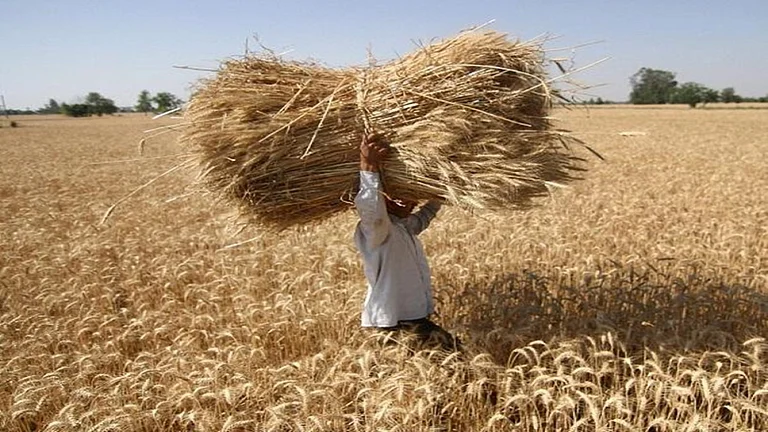APEDA plans to open offices in Patna, Dehradun, Raipur to support agri exporters.
Sustainable shipping and value-added products to enhance export competitiveness worldwide.
Strategy aims to expand India’s agri exports to Europe, US, Japan.
APEDA to Launch Regional Offices in Patna, Raipur, Dehradun to Strengthen Agri Exports and Global Reach
APEDA’s new regional offices are expected to enhance agricultural exports and diversify global markets
The commerce ministry's arm, Agricultural and Processed Food Products Export Development Authority (APEDA), is planning to open its three new regional offices in Patna, Dehradun and Raipur to support agri exporters, an official told PTI.
The Delhi-headquartered authority has 16 regional offices in cities currently including Bengaluru, Srinagar, Jammu, Ladakh, Guwahati, Mumbai, Varanasi, Kochi and Bhopal.
The functions of the authority include development of industries relating to a certain number of products for export, registration of persons as exporters of those products, fixing of standards, improving packaging, and marketing.
Enhancing Agri Export Capacity
The new offices are expected to promote shipments by agri exporters. APEDA has taken a series of measures to boost the country's agri exports, which crossed $50 billion in 2024-25.
"Focused measures are being taken by APEDA to diversify exports of its scheduled products, including GI-tagged products. This includes boosting exports of traditionally exported products such as cereals and buffalo meat, while at the same time promoting exports of new products like organic produce, processed fruits and juices," the official added.
In addition, the authority is developing sea protocols for perishables to enable sustainable, cost-effective shipments and improve competitiveness to expand exports. The authority has undertaken R&D with the Indian Institute of Millet Research and the International Rice Research Institute (IRRI) for innovative value-added products from millets and rice and improved packaging to extend shelf life to preserve freshness and maintain quality in transit.
To ensure that the Indian agri-export workforce remains aligned with evolving global quality and safety standards, initiatives are being undertaken by APEDA to strengthen technical skills, institutional capacities and compliance through intensive training and capacity building of stakeholders, including farmers.
Expanding Market Reach Strategy
According to Mint, APEDA has also engaged top-tier think tanks the Indian Council for Research on International Economic Relations (Icrier) and Crisil to draft a new playbook to target export of high potential products like makhana, fruits and processes foods to new markets, while bolstering export infrastructure and market reach as global trade reels from the lingering uncertainties.
This initiative will analyse and map the whole value chain of high-potential agricultural and processed food products, identify challenges and opportunities and suggest strategies tailored to specific regions and countries. The goal is to diversify India’s export destinations beyond the conventional routes in West Asia, Africa and Asia Pacific, opening opportunities to markets in Europe, the US, Japan and South Korea.

